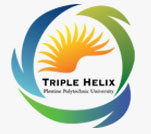KEYNOTE SPEAKERS
Prof. Sameer Hana Khader/Symposium Chairman

Prof. Khader is a Full Professor of Electrical Engineering at Palestine Polytechnic University (PPU) – 2012-2015, he was Dean of Graduate Studies & Scientific Research Palestine, during 2010-2011 year he was a visiting professor at University of Hartford, CT, USA spending his sabbatical year. He is a director of Power Electronics & Signal Processing Research Unit at PPU. Before that he served for ten years as university academic provost, dean of college of Applied Professions, and Chair of the Electrical & Computer Engineering Department at PPU. His research interests include Electrical machines, Electrical drives, Power Electronics Converters, Renewable Energy Sources and Smart Grids, in addition to engineering education and e-learning technologies. In 2008 Prof. Khader was awarded for Teaching Excellence Award offered by AMIDEAST. He attended 10 ICT modules offered by EU in 2008 in cooperation with Ministry of Higher Education of Palestine, and hosted by Giunti Labs in Italy:(http://www.checkpoint-elearning.com/article/5379.html). Furthermore Prof. Khader has few IEEE publication in the field of ICT & e-learning Technologies.
Prof. Khader may be contacted at sameer@ppu.edu; Mobile: 0599889623
INTERNATIONAL KEYNOTE SPEAKERS
Prof. Akram Abu-Aisheh / University of Hartford.
A kram Abu-Aisheh is an Associate Professor of Electrical and Computer Engineering at the University of Hartford. He was the Assistant Chair of the Electrical and Computer Engineering Department and Director of the Electronic and Computer Engineering Technology Program for two years. Professor Abu-aisheh has a Ph.D. in Optical Communications from the Florida Institute of Technology as well as M.S. and B.S. degrees in Electrical Engineering from the University of Florida. Professor Abu-aisheh's research interests include fiber optic communications and power electronics.
kram Abu-Aisheh is an Associate Professor of Electrical and Computer Engineering at the University of Hartford. He was the Assistant Chair of the Electrical and Computer Engineering Department and Director of the Electronic and Computer Engineering Technology Program for two years. Professor Abu-aisheh has a Ph.D. in Optical Communications from the Florida Institute of Technology as well as M.S. and B.S. degrees in Electrical Engineering from the University of Florida. Professor Abu-aisheh's research interests include fiber optic communications and power electronics.
Presentation Title : Fostering Power Electronics Students Engagement
Using Problem Based Learning
ABSTRACT:
The demands for clean and sustainable energy sources have increased rapidly in the last decade, and solar energy is one of the most valuable and abundant low-maintenance clean sustainable energy source that is becoming the preferred energy source. Photovoltaic (PV) solar energy systems require the use of DC-DC converters to regulate and control the varying output of the solar panel. The three basic DC-DC convertor topologies used in photovoltaic solar energy systems are buck, boost, and buck-boost converter topologies. The three basic non-isolated switch-mode DC-DC converters are also used in many industrial applications to regulate and control the amplitude of an unregulated voltage.
Power electronics is used in the design of renewable energy systems. In photovoltaic solar energy systems, DC-DC converters are used to regulate and control the amplitude of the solar panel output voltage. There are three basic non-isolated switch-mode DC-DC convertor topologies; step down (buck), step up (boost), and step up or down (buck-boost). For each of these converter topologies, the converter design and continuous conduction mode (CCM) analysis are presented here in the two PB L examples presented here.
This work presents the effects of implementing two problem based learning (PBL) projects in a power electronics course on student engagement. These PBL projects are in the area of Sustainable LED illumination systems; The first one is an off-grid PV-powered LED street light, and the second one is grid-connected LED illumination system for buildings. These two projects can be used to help power electronics students in getting a comprehensive understanding of power electronics principles.
Keywords: Problem Based Learning, Student Engagement, Power Electronics, LED Illumination.
Prof. Piet Kommers University of Twente, Faculty of Behavioural Sciences. Professor of UNESCO Learning Technologies
P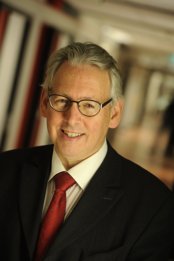 rof . Kommers is an early pioneer in media for cognitive- and social support. His doctoral research explored methods for hypertext and concept mapping in learning. Since 1982 he developed educational technology as an engineering approach for learning and teaching. His main thesis is that technology is catalytic for human ambition and awareness. His main function is associate professor in the University in Twente, The Netherlands and adjunct/visiting professor in various countries. He taught more than fifteen bachelor-, master- and PhD courses and supervised more than 30 PhD students. He instigated and coordinated the NATO Advanced Research Workshop on Cognitive Technologies in 1990 and a large series of Joint European Research Projects in: authoring multimedia, web-based learning, teacher education, virtual 3d worlds, constructivist learning, social media, web-based communities and international student exchange. UNESCO awarded his work in ICT for Education in Eastern Europe with the title of Honorary Professor. The Capital Normal University in Beijing awarded his work with the title of Honorary Doctor. He is member of advisory boards in ministries of education and academia of sciences in Singapore, Finland and Russia. Piet Kommers is the initiator of the international journal for web-based communities and overall chair of the IADIS conferences on societal applications of ICT. Since the late nineties he gave more than 40 invited and keynote lectures at main conferences in the fields of education, media and communication. His books and journal articles address the social and intellectual transformations at each transition from “traditional” into the “new” media. Instead of regarding media as extrapolating, supplanting, vicarious or even disruptive, Piet’s view is that new media elicit and seduce both individuals and organizations to reconsider human nature and challenge existential awareness at that very moment. His main publications and citation score can be found here.
rof . Kommers is an early pioneer in media for cognitive- and social support. His doctoral research explored methods for hypertext and concept mapping in learning. Since 1982 he developed educational technology as an engineering approach for learning and teaching. His main thesis is that technology is catalytic for human ambition and awareness. His main function is associate professor in the University in Twente, The Netherlands and adjunct/visiting professor in various countries. He taught more than fifteen bachelor-, master- and PhD courses and supervised more than 30 PhD students. He instigated and coordinated the NATO Advanced Research Workshop on Cognitive Technologies in 1990 and a large series of Joint European Research Projects in: authoring multimedia, web-based learning, teacher education, virtual 3d worlds, constructivist learning, social media, web-based communities and international student exchange. UNESCO awarded his work in ICT for Education in Eastern Europe with the title of Honorary Professor. The Capital Normal University in Beijing awarded his work with the title of Honorary Doctor. He is member of advisory boards in ministries of education and academia of sciences in Singapore, Finland and Russia. Piet Kommers is the initiator of the international journal for web-based communities and overall chair of the IADIS conferences on societal applications of ICT. Since the late nineties he gave more than 40 invited and keynote lectures at main conferences in the fields of education, media and communication. His books and journal articles address the social and intellectual transformations at each transition from “traditional” into the “new” media. Instead of regarding media as extrapolating, supplanting, vicarious or even disruptive, Piet’s view is that new media elicit and seduce both individuals and organizations to reconsider human nature and challenge existential awareness at that very moment. His main publications and citation score can be found here.
Presentation Title: "Learning-Playing-Working as Spiral in Societal Evolution: A Serious Game Changer.
ABSTRACT:
Educational practices shift from curricular to continuous life-long learning in which the learner needs to develop the efficacy in self-regulation and a recurring willingness to revise existential and professional views. In terms of expertise access there is not so much a physical boundary as was before. Much more decisive is the growing need to redefine the concepts of work, jobs and enterprise. This lecture will highlight the typical affordances to equip vocational and regular higher education with 21st century skills and attitudes. The growing awareness is that social media can no longer be seen just as distractions to what we used to call “study mentality”; Students need to work and play in teams; not only in gaming; also in preparing for a next job or to create a new enterprise. For this sake the triangle learning-playing-working is gathering momentum. Its invoked paradigm is that playing as mind-set is a vital hub between existential comfort and conceptual ambitions. Entrepreneurial skills are explored and injected in schooling stages. However, even the suggestion that these skills can be transferred is a vulnerable assumption. Problem-based learning however seems to be more proliferating at that point. Recent and ongoing projects will be illustrated.
Prof. Tom A. Eppes, Ph.D/ University of Hartford
P rof. Eppes received his Ph.D. in Electrical Engineering from the University of Michigan and B.S. and M.S. degrees from Texas A&M University. His industry background spans 30 years with experience in research & development, engineering, product development, manufacturing and operations. He was employed by 3 Fortune 500 companies and later became a principal in four start-up ventures, one of which completed a successful initial public offering. His responsibilities have included an annual budget of $45 million with 150 direct and indirect reports. Prof. Eppes has 14 years of experience in higher education as an assistant, associate, and full professor. His research interests include advanced manufacturing processes, Multiphysics modelling, hybrid aerial projectiles, and software application development. He is a contributing author to over 80 journal articles and conference papers, and holds one US patent. In the last 8 years, he co-developed 7 network and systems software applications. Since joining the University of Hartford, he has been awarded or participated in 30 grants totalling approximately $3 million. Prof. Eppes is a member of the Institute of Electrical & Electronic Engineers (Communications Society), the American Society for Engineering Education, and is a reviewer for the Journal of Laser Applications and the American Journal of Engineering Education. He recently served as Chair of the Department of Electrical & Computer Engineering responsible for 6 programs of which 3 are ABET accredited.
rof. Eppes received his Ph.D. in Electrical Engineering from the University of Michigan and B.S. and M.S. degrees from Texas A&M University. His industry background spans 30 years with experience in research & development, engineering, product development, manufacturing and operations. He was employed by 3 Fortune 500 companies and later became a principal in four start-up ventures, one of which completed a successful initial public offering. His responsibilities have included an annual budget of $45 million with 150 direct and indirect reports. Prof. Eppes has 14 years of experience in higher education as an assistant, associate, and full professor. His research interests include advanced manufacturing processes, Multiphysics modelling, hybrid aerial projectiles, and software application development. He is a contributing author to over 80 journal articles and conference papers, and holds one US patent. In the last 8 years, he co-developed 7 network and systems software applications. Since joining the University of Hartford, he has been awarded or participated in 30 grants totalling approximately $3 million. Prof. Eppes is a member of the Institute of Electrical & Electronic Engineers (Communications Society), the American Society for Engineering Education, and is a reviewer for the Journal of Laser Applications and the American Journal of Engineering Education. He recently served as Chair of the Department of Electrical & Computer Engineering responsible for 6 programs of which 3 are ABET accredited.
Presentation Title :On Building and Sustaining a Vibrant Industry-Academia Partnership
Abstract
Developing and sustaining a vibrant and collaborative relationship between academia and industry requires persistence and diligence across several fronts. On the educational side, the curricula should ensure that students at the graduate and ungraduated levels possess sufficient practical skills useful in solving real world problems. This may require changes within the engineering programs, among the faculty ranks, and the supporting facility/equipment infrastructure. While both parties must be active participants, it is incumbent on industry to adopt a longer term view of the partnership compared to many of their other endeavours. After several decades growing and strengthening our industry partnerships, some illustrations and lessons learned are presented where we have enjoyed the most success.
Presently, the undergraduate engineering program at the University of Hartford offers a high percentage of industry-sponsored summer internships and senior capstone design projects. Where possible, alumni are selected to be the industry liaisons and work directly with student teams when appropriate. At the graduate level, new courses have been created that focus specifically on skills highly valued by local industry such as optical fibre communications, power electronics, metrology, advanced manufacturing, sustainable design, and Multiphysics modelling. This has fuelled several industry-funded research initiatives and also boosted student confidence in competing for internal and external grants.
Prof. Saeid Moslehpour / University of Hartford

Saeid Moslehpour is a Professor and Assistant Dean of Graduate Studies in College of Engineering, Technology, and Architecture at the University of Hartford. Currently he is currently editor of Computer in Education Journal of ASEE. He holds Ph.D. (1993) from Iowa State University, Master of Science (1990) and Bachelor of Science from University of Central Missouri and (1989). His research interests include modelling, simulation, CPLDs, FPGAs, analog/digital mixed, embedded electronic system testing, rapid prototyping and cyber learning. He is former faculty senate chair, ASEE Section I chair, co-director of Connecticut NASA Space Grant and ECE department chair, email: moslehpou@hartford.edu
Presentation Title : Electronic Design Automation for Industry
Abstract
Electronic design automation (EDA) is a classification of software means for designing electronic systems such as printed circuit boards (PCBs) and integrated circuits (ICs). These tools work together in a design flow that chip designers use to design and analyze entire semiconductor chips. EDA is also referred to as electronic computer-aided design (ECAD). SPICE (Simulation Program with Integrated Circuit Emphasis is one of the earlies tools of EDA for electronic circuit simulation and is it open source, SPICE1 was first presented at a conference in 1973. With the advancement of digital technology Hardware Disruptive Language (HDL) was introduces first by Advanced Boolean Equation Language (ABEL) and later by Verilog and VHDL ([VHSIC Very High Speed Integrated Circuit] Hardware Description Language). Companies like Cadence, Synopsys and Agility Design Solutions are promoting System C language as a way to combine high-level languages with concurrency models to allow faster design cycles for FPGAs than is possible using traditional HDLs.
NATIONAL KEYNOTE SPEAKERS
R oyal Industrial Trading Co.
oyal Industrial Trading Co.
Royal is a leading Palestinian manufacturer of advanced pipe systems and innovative plastic products, with over 23 years of experience. We are specialized in many plastic production fields for the Palestinian and global markets – water supply, indoor & outdoor furniture, household, doormats, and fireplaces.
We are very strong in R&D capability. Most importantly, we have dedicated team who are ready to provide efficient and professional services to our customers anywhere at any time. Our managing departments are responsible for the company operations and development planning. Constant efforts are taken by them to make our services system more efficient, thus serve our customers better.
Our new products all comes out first from the top management and our R&D team. Royal's comprehensive product line of water tanks, pipes, fittings, and flushing cisterns for the building sector is available in all standard diameters and sizes, and in a wide range of plastic materials.
Royal employs more than 600 non-smoker employees with different expertise within different departments on over than 40,000 m2 building area and over than 45,000 m2 surface area. Royal has achieved three main production methods (Extrusion, Roto- Moulding, Blow moulding and Injection).
All Royal products are manufactured in accordance with high quality standards. Royal's manufacturing procedures comply with the most rigorous international standards of quality assurance, environmental protection, and employee health & safety. Royal's Quality management system is ISO 9000 and PSI certified, and the environmental management system is ISO 14000. Our products are also comply with the Palestinian and International Standards.
Eng.Rjoub, Imad /Plant Manager at Royal Industrial Trading Co
E ng. Imad Rjoub was born in Hebron - Palestine in 1973. At the end of 1997, he received the degree of Bachelor of Science in the field of Mechanical Engineering from Beirzeit University. He started working in the field of quality and the total quality management at Royal Company. At 2009, he received the master of business administration from Hebron University. Since that time, he worked as a plant manager at the same company. Eng. Imad Rjoub is an expert in the field of Community development and social responsibility. He participated in many workshops related to sustainability management as a speaker. One was presented at the Annual Arabia CSR Awards: Tue, 30th of April, 2013. And the latest one presented at Cairo at April 2016 in corporation with the GIZ. Eng. Rjoub is also expert in the field of environmental quality management and safety. Eng. Rjoub is a Lecturer at Al-Quds Open University as well as Palestinian Polytechnic University (The Management and Control of Quality.
ng. Imad Rjoub was born in Hebron - Palestine in 1973. At the end of 1997, he received the degree of Bachelor of Science in the field of Mechanical Engineering from Beirzeit University. He started working in the field of quality and the total quality management at Royal Company. At 2009, he received the master of business administration from Hebron University. Since that time, he worked as a plant manager at the same company. Eng. Imad Rjoub is an expert in the field of Community development and social responsibility. He participated in many workshops related to sustainability management as a speaker. One was presented at the Annual Arabia CSR Awards: Tue, 30th of April, 2013. And the latest one presented at Cairo at April 2016 in corporation with the GIZ. Eng. Rjoub is also expert in the field of environmental quality management and safety. Eng. Rjoub is a Lecturer at Al-Quds Open University as well as Palestinian Polytechnic University (The Management and Control of Quality.
Presentation Title : Presentation About Triple Helix Partnership
Abstract
It was an honor for Royal Industrial Trading Co. to team up with the PPU and Palestinian Energy Authority for the Triple Helix program. From this cooperation, Royal has gained many benefits. For example, many effective activities were done such as: Testing water quality (drinking and waste water), testing air quality (air pollution Particle size and dust), Measuring oil level in the wastewater, measuring gas Emission, measuring combustion efficiency, Conducting energy audits.
On the other hand, Royal participated effectively with this program through:
Conducting training programs for students in the field of environmental protection, helping PPU students in conducting environmental researches (practical and theoretical).
Finally, it was our pleasure to cooperate with these organizations and are looking forward to conducting many more projects in the near future with such organizations, in order to positively reflect and to enhance the performance of our organization.
A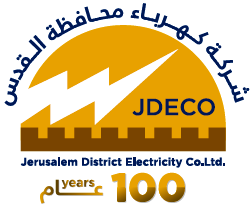 Jerusalem District Electricity Company (JDECO):
Jerusalem District Electricity Company (JDECO):
JDECO is one of the most important modern and leading companies in the field of electric power and renewable energy in Palestine, since it provides electric power to more than 200 thousand customers spreading in Jerusalem, Ramallah, Bethlehem, and Jericho. JDECO is known for outstanding sustainability since its foundation in 1914 as one of the more serious economic companies in Jerusalem back from the days of the Ottoman Empire, and all the way through the British Mandate, the Jordanian rule and the Israeli Occupation. JDECO set its goals to make a mark in improving the level of services it offers to the costumers by the application of modern management approaches and up to date technological systems, which as a result provides energy security via continuity in power supply, while developing top service quality through the use of the best technological tools and applications according to international standards and specifications. The company’s vision is to twin its national and professional commitment towards the costumers and the Palestinian electrical sector by providing diverse sources of electricity, infusion of electrical services with modern technology, and protect the sustainability of the company; giving it a well placed role in the national socio-economic development; in the pursuit of building an energy secure and self-sufficient Palestinian society, applying the optimal use of energy as an engine for a stable and flourishing economy.
JDECO executed many vital and important projects in the energy sector and renewable energy sector over the past years. In addition, JDECO developed smart systems that provide better management systems transferring the company from a traditional company to a modern day electrical company, elevating the company's role as a leader in the sector and as a main player in the direction towards sustainable energy security in Palestine. Within JDECO’s strategy to empower the electric and energy sector in Palestine, and in compliance with the directives of the Board of Directors, which seeks to continue laying the foundations for sustainable economic development, the company has established a technical and training Center in 2006 in Jericho. It is the first Center which provides training for undergraduate students and professionals in both technician and management levels for both beneficiaries outside and inside the company; with specialization in the solar power systems. This has enabled JDECO to be actively promoting and facilitating the connecting of renewable energy systems onto the electricity grid network, helping to provide alternative energy sources to imported power in support of national energy diversification and household efficiency.
Mr. Hani S. Ghosheh
Mr.Ghosheh Worked at Jerusalem District Electricity Company from 1981 until now as administrator of the station section , administrator of Protections , director of the Jerusalem Branch , director of the Ramallah Branch, director of the Bethlehem Branch, now he is an administrator of Solar file & Manager of Palestinian Incubator for Energy (PIE(.
Mr.Ghosheh finished the master degree in electrical engineering .He Completed a eighteen months training course in the field of electrical engineering from United Kingdom
Presentation About Triple Helix Partnership
|
|
-
Hebron Electric Power Company
He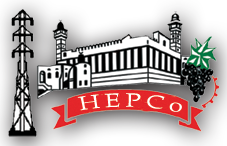 bron Electric Power Company is a private shareholding company that merged in 2002 as a newly corporatized power utility following a presidential decree for privatizing the energy sector to alleviate the burden off the government and encourage the private sector to participate in developing and investing in this essential sector. In 2005, HEPCo was fully operated by a highly qualified staff using the latest technologies in meter reading and archiving and financial systems, and it succeeded to be one of the fastest growing energy companies present in the Palestinian territories. Our service area covers 92 square kilometers of the largest and fastest growing city in the West Bank. We provide electricity to about 30,000 electric customers throughout Hebron and in Halhul as well as some parts of Sa'ir.
bron Electric Power Company is a private shareholding company that merged in 2002 as a newly corporatized power utility following a presidential decree for privatizing the energy sector to alleviate the burden off the government and encourage the private sector to participate in developing and investing in this essential sector. In 2005, HEPCo was fully operated by a highly qualified staff using the latest technologies in meter reading and archiving and financial systems, and it succeeded to be one of the fastest growing energy companies present in the Palestinian territories. Our service area covers 92 square kilometers of the largest and fastest growing city in the West Bank. We provide electricity to about 30,000 electric customers throughout Hebron and in Halhul as well as some parts of Sa'ir.
Objectives
-
To develop HEPCo into a fully electronically operated utility on a par with other leading distribution companies in the region.
-
To provide a reliable and sustainable power supply to meet the increase of demand in an efficient manner and at the least cost possible together with the improvement of efficiency and reduction of losses.
-
Develop a professional human resources base.
Business Drivers:
Improve the utility performance, productivity, efficiency, and control, Cutting down the liabilities and customers' arrears, Achieve high levels in satisfying customers, Increase of revenues, reduce the operating costs to provide shareholders with a return on investment through sustained growth, development and improved profitability, Lessen the illegal usage and thefts, Adopt new technologies to improve meter reading and collection procedures through prepaid meters and on-site bills, Charge adequate and reasonable tariffs that considers economic conditions, Respect "Best Practices" concerning environmental practices and abide by international standards concerning occupational safety.
Presentation Title : Presentation About Triple Helix Partnership
Abstract:
The PPU Triple Helix project partnership with Hepco is an outcome of an agreement signed with PPU early this year for joint cooperation in all academic, training , energy aspects, joint projects and quality assurance fields, and to the agreement signed with PPU project manager in October this year to train PPU students level of graduates and undergraduates on power protection for MV systems which took place in November this year as part of Triple Helix activities, In that event Hepco trained 16 student , graduate engineer and supervisor for a period of 8 days on a special course mainly control systems and electrical installations in its premises, funds were allocated by the Ministry of Higher Education quality fund QIF.
This is a three year project funded through quality improvement fund managed by Ministry of Higher Education and funded by World Bank and implemented by PPU. This project will enrich and provide university students with entrepreneurial skills to enable them compete in the market jobs.
Since Hepco is one of the main private companies in the energy market, students of this project will be trained on skills and communications. Triplex model presents actual partnership between three sectors:
-
PPU as academic sector
-
PEC and PENERA energy sectors as public sector
-
Hepco as private sector working in the field of energy and electrical sector.
Realy we are very much confident and proud in this partnership and in the value of this business for current and future projects. I congratulate PPU for this success story in the field of innovation and convey my valued
D r.Jihad Jebreini/The General Manager Of Al-Jebrini Group companies
r.Jihad Jebreini/The General Manager Of Al-Jebrini Group companies
Dr. Jihad "Mohammed Saleh," Ismail Jebreini was born in Hebron in 1972, and currently serves as general manager of Al-Jebrini Group companies.
Dr. Jihad earned his bachelor's degree in food processing from Milan-Italy in 1997. Then he completed his postgraduate studies from 1997 to 2000 in the city of Parma-Italy, specialty food manufacturing technology. In his studied, Dr.Jihad spent two years in the Italian factories. Upon completing a Ph.D. in 2000, he returned to his homeland to become the general manger of Al-Jebrini groups companies.
Dr.Jihad had a partnerships with global companies specialized in cheese, then Al-Jebrini Cheese Company was opened in 2010. It is the first company in Palestine to produce yellow cheese from fresh milk 100%.
Social responsibility towards the Palestinian community is an essential part of Dr.Jihad work, for example Dr.Jihad is the director of youth sports club-Hebron.
Presentation Title : The Successful cooperation relationship between Al-Jebrini Group Companies & Palestine Polytechnic University .
Abstract:
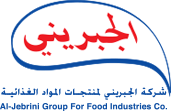 Al-Jebrini Group Companies consists of six companies, which are Al-Jebrini Company for Dairy & Food Industry, Pal Farm Company, Al-Jebrini Cheese Company, Al-Jebrini Food Industries, E.F.G Company for alternative energy, and Pal Group Company.
Al-Jebrini Group Companies consists of six companies, which are Al-Jebrini Company for Dairy & Food Industry, Pal Farm Company, Al-Jebrini Cheese Company, Al-Jebrini Food Industries, E.F.G Company for alternative energy, and Pal Group Company.
Al-Jebrini Company for Dairy & Food Industry has compiled long experience in production and distribution of dairy products for the local market to become one of the largest manufacturers. Al Jebrini Dairy Company played an important role in developing the Dairy sector in Palestine by working with local milk farmers and ongoing improvement to the production and distribution facilities
On the other hand, E.F.G. "Energy for Future Generation" for Alternative Energy is a Palestinian private limited Company, established in 2013, linked to a dairy farm with the objective to produce renewable energy from organic residues. It is the first company that has started the Biogas project in Palestine.
The EFG Biogas project is the first project in the Palestine Authority aimed to produce renewable energy and bio- fertilizers by treating dairy farm waste through the Anaerobic Digestion process which converts cow manure into electricity.
The biogas plant produces biogas from biomass (organic waste) through Anaerobic Digestion. This process generates biogas and bio-fertilizer (digestate). The biogas plant will transform the biogas through a Combined Heat and Power unit into thermal energy (heat) and (green) electricity.
The Palestine Polytechnic University (PPU) in Hebron will participate as a knowledge partner in this project. Its faculty of Energy has executed extensive research in the field of rural and renewable energy in the Palestinian Authority and will share its knowledge about the Palestinian energy market.
